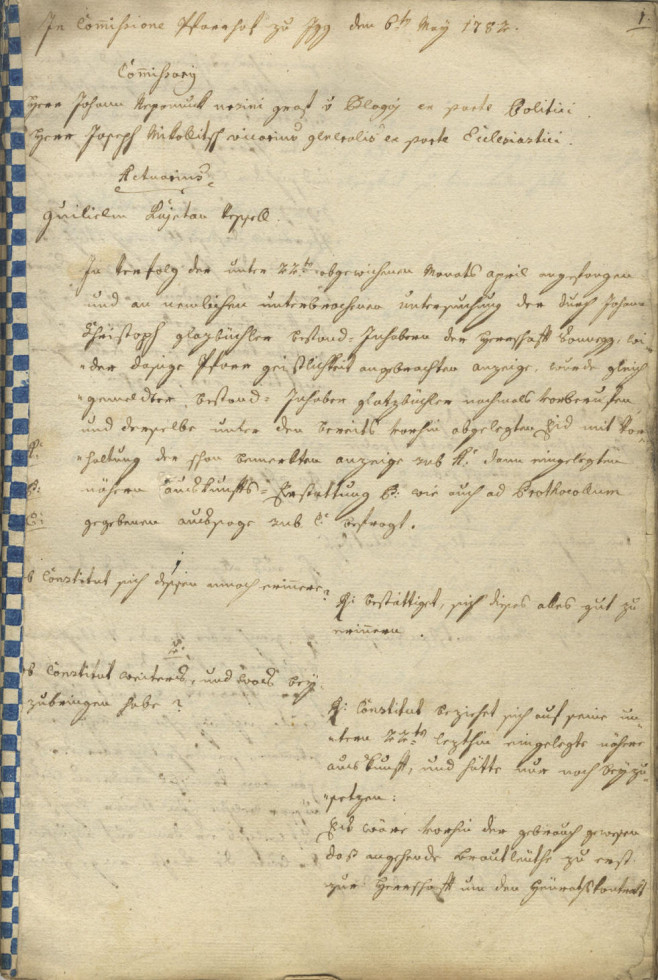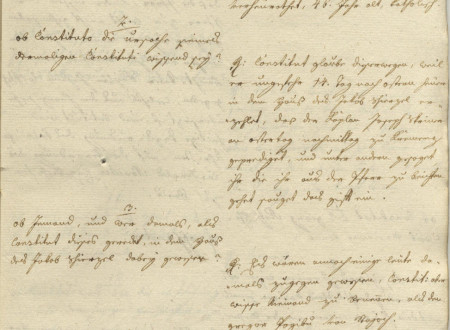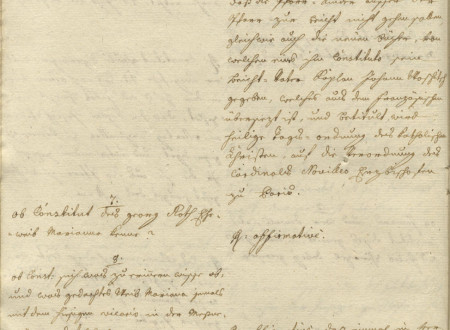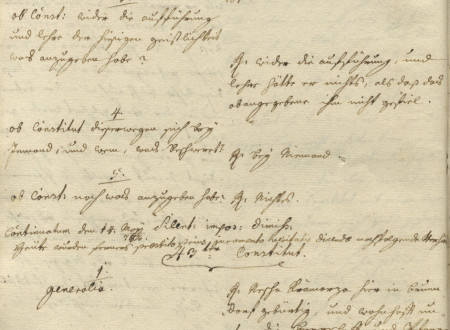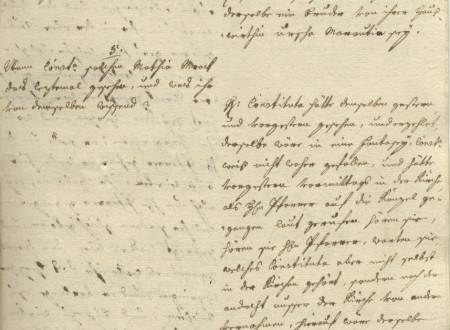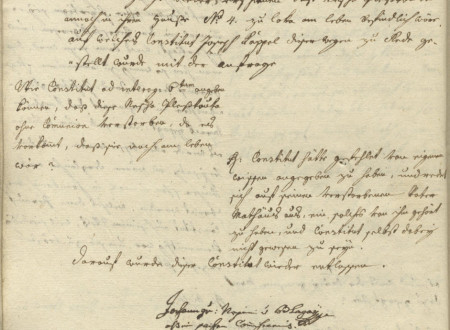The Minutes of the Questioning of the Ig Parishioners in Regard to their Complaints against the Parish Clergy
In 1785, after four years of holding the office of parish priest at Ig, Jožef Gollmayer realized that he would soon have to leave the parish due to persistent complaints of his parishioners. The relations between the parishioners and the parish clergy, headed by Gollmayer as the parish priest and dean, were strained ever since Gollmayer’s arrival in June 1781. The tense atmosphere was to a large degree a result of the wide-ranging religious reforms introduced by the Enlightenment circles of Emperor Joseph II (1780-1790). Abolition of confraternities and pilgrimages, prohibition of displaying relics, and closing down of “superfluous” churches met with widespread disapproval. By mid-1780s dissatisfaction was also due to the dissolution of a number of monasteries, while among the non-religious measures it was the attempts to introduce obligatory re-compensation of labour that provoked further dissent. The parishioners of Ig were mostly opposed to “novelties” in administering the sacraments of penance, Eucharist and anointing of the sick. Gollmayer in particular discouraged people to take communion despite the fact that they had confessed several times. Allegedly he let quite a few people die without the so-called last sacraments.On behalf of the parishioners, most of whom were subjects of the Ig (Sonnegg) seigniory, the charges against the Ig clergy were brought by the seigniory leaseholder Janez Krištof Glazbichler.
The minutes of the questioning of the Ig parishioners in the spring of 1782 is one of the two protocols dealing with the events at Ig that are kept by the Archives of the Republic of Slovenia. The earlier of the two protocols comprises testimonies of the priests (four of them residing at Ig and two in the nearby Tomišelj and Kurešček), while the later one brings questions and answers of 53 parishioners. These were questioned from May 6-8 and from May 10-12 by two representatives of temporal and church authority: Janez Nepomuk Ursini Count of Blagaj and Jožef Mikolič, Vicar General of the Ljubljana Diocese. The interrogated parishioners were of different age, ranging from 15 to 80, most of them were married, among them 45 men and 8 women. A 20-year-old Mica Zupič (Supitsch), for example, stated that after her marriage the clergy had not allowed her to take communion, about which she complained to her parents, and her mother then sent her to Preserje, where she could both confess and receive communion. A 60-year-old widow Neža Kramar observed that the number of communicants at Ig had never been so low. She also witnessed Gollmayer’s unwillingness to give communion to her landlady’s brother, claiming that the man was not really sick, although the priest had been urged to come because of the man’s heart problem.
The statements of some of the interviewees, among them Jakob Jenčič, the Ig teacher and sacristan, pointed to the “unorthodox” books used by the Ig clergy. One of such “new” books, translated from French, was said to have been given to Jenčič by his confessor, curate Janez Božič (Woschitsch). The preserved lists of books possessed by Gollmayer and his two assistant curates reveal a considerable amount of Jansenistic literature. Among the works of Cornelius Jansenius (died 1638), the “founder” of the complex Jansenist movement, his “Commentarius in Sancta Jesu Christi Evangelia” was to be found in Gollmayer’s catalogue. The libraries of the three priests included Le Nouveau Testament avec des réflexions morales by Pasquier Quesnels (died 1719), one of the leading Jansenists of the late 17th and early 18th centuries. Most Jansenist books were part of Gollmayer's library. It is therefore not unusual that the accompanying documents include the list of five propositions condemned by Pope Clemens XI in his bull Vineam Domini of 1705. Perhaps the possession and use of Jansenistic works contributed to the outcome acceptable to the parishioners of Ig. In 1786 Gollmayer, who had left for the parish of Kranj, was succeeded by Janez Pavel Stroj.
Lilijana Žnidaršič Golec


